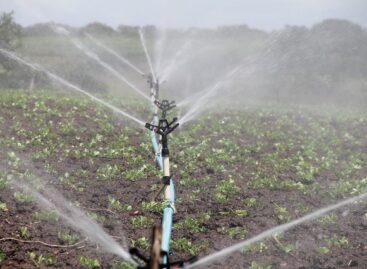The central issue of agricultural policy is the management of the effects of price increases
The central issue of the domestic agricultural policy is the management of the effects of the extreme price increases on the crop, gas, electricity and fertilizer markets, which started earlier, but which were amplified worldwide due to the Russian-Ukrainian war, said the Minister of Agriculture in Kaposvár on Thursday.

(Photo: Pixabay)
István Nagy referred to it at the forum held on Animal Breeders’ Day at the Kaposvár Campus of the Hungarian University of Agriculture and Life Sciences (MATE): the difficulties of the past two years have presented hitherto unknown challenges to Hungarian agriculture, for which this is a test of crisis resistance and crisis management, and it cannot be said that that he is over it. Among the measures to deal with the crisis, the minister mentioned the loan moratorium, the extension of the effective date of the contracts for interest- and cost-free loans that can be taken out within the framework of the Agrár Széchenyi Card overdraft and the MFB agricultural working capital loan program 2020, and, among other things, support for feeding costs. The minister believed that the regulations of the new Common Agricultural Policy (KAP), which will come into force on January 1, 2023, represent both challenges and opportunities, at the same time he called it a great success from the point of view of animal breeders that, despite a gradual reduction, the domestically financed subsidies will remain until 2027 temporary national subsidies. He explained that the payment of support for breeding organization tasks is progressing according to plans. 1.14 billion forints were paid out from the source to help maintain and improve the genetic quality of the breeding stock until the middle of the third quarter. He emphasized that it was a significant result from the point of view of Hungary’s food security that during the CAP reform it was possible to protect the proportion of amounts that could be spent on production-related subsidies. Thus, until 2027, the same amount as the current amount, about 202 million euros, will be allocated annually, the range of beneficiary sectors will not change, more than two-thirds of the money will help animal husbandry – listed István Nagy. The minister emphasized that special attention is being paid to improving the competitiveness of livestock farms, as well as to the general support of the livestock sector through the numerous calls of the Rural Development Program. In addition to investment subsidies, measures aimed at preserving genetic resources, improving animal welfare conditions and encouraging environmentally conscious farming contribute significantly to the sustainability of animal husbandry. he noted.
These are necessary to maintain competitiveness
To strengthen competitiveness, István Nagy stated the establishment of high-tech livestock farms in accordance with EU standards, the “promotion of green goals”, and the improvement of energy efficiency. Livestock farmers can still count on subsidies for the purchase of machinery and equipment, and for the development of farms: according to the plans, the entrance fee for modernization applications will be at least 40 percent of agricultural sales and a farm size worth 10,000 euros, he said. He added that the subsidy rate will be 50 percent by default, but it can reach 65 percent if the applicant is a young farmer. Ecological farming is worth an extra 10 percent intensity, but the maximum support can be 80 percent of the costs if the investment is aimed at environmental or climate protection. István Nagy also spoke about the fact that they continue to support the survival of protected and native agricultural animal breeds, the preservation of their genetic stock, and in the form of new subsidies, more emphasis is placed on improving animal welfare conditions. The minister voiced his opinion that keeping Animal Breeders’ Day is important even in the face of increasingly widespread views against the consumption of animal protein. The consumption of animal proteins is our biological need, for the healthy development and maintenance of existence, humans need meat, milk, and eggs, the minister emphasized. He believed that action should also be taken against other reports that portray animal husbandry in a bad light. – It must be shown to everyone that the deservedly famous Hungarian animal husbandry produces indispensable products, produces excellent quality, works in harmony with the environment, pays attention to biodiversity, is part of the preservation of the cultural landscape, part of Hungarian culture. – said István Nagy.
AM
Related news
János Lázár: rural development is needed, not agricultural policy
🎧 Hallgasd a cikket: Lejátszás Szünet Folytatás Leállítás Nyelv: Auto…
Read more >ENAR data reconciliation for cattle, sheep and goat, pig and poultry farmers is underway until the end of March
🎧 Hallgasd a cikket: Lejátszás Szünet Folytatás Leállítás Nyelv: Auto…
Read more >NAK: farmer needs assessment can help the development of irrigation training
🎧 Hallgasd a cikket: Lejátszás Szünet Folytatás Leállítás Nyelv: Auto…
Read more >Related news
MOHU: 5,200 return points are in operation, but 47 larger settlements still do not have RE points – public “enema” machines may be introduced
🎧 Hallgasd a cikket: Lejátszás Szünet Folytatás Leállítás Nyelv: Auto…
Read more >GDP growth in OECD member countries slowed to 0.3 percent in the last quarter of last year
🎧 Hallgasd a cikket: Lejátszás Szünet Folytatás Leállítás Nyelv: Auto…
Read more >








